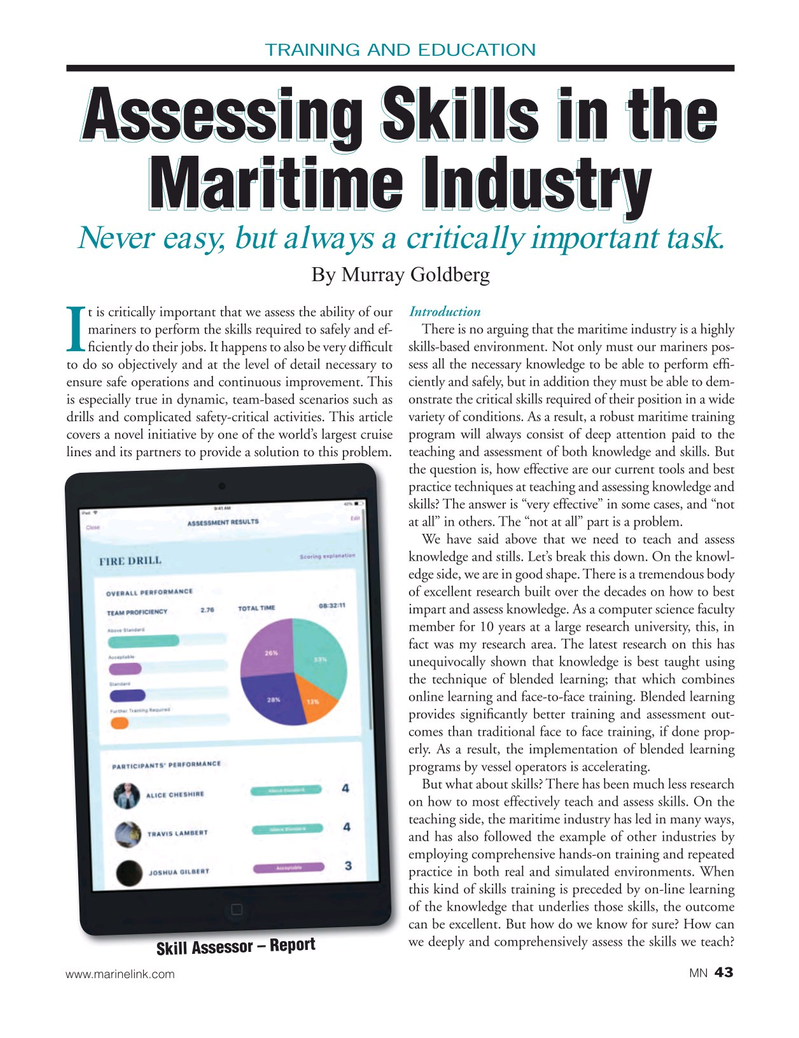
Page 43: of Marine News Magazine (January 2018)
Passenger Vessels & Ferries
Read this page in Pdf, Flash or Html5 edition of January 2018 Marine News Magazine
TRAINING AND EDUCATION
Assessing Skills in the Assessing Skills in the
Maritime IndustryMaritime Industry
Never easy, but always a critically important task.
By Murray Goldberg t is critically important that we assess the ability of our Introduction mariners to perform the skills required to safely and ef- There is no arguing that the maritime industry is a highly
I ? ciently do their jobs. It happens to also be very dif? cult skills-based environment. Not only must our mariners pos- to do so objectively and at the level of detail necessary to sess all the necessary knowledge to be able to perform ef? - ensure safe operations and continuous improvement. This ciently and safely, but in addition they must be able to dem- is especially true in dynamic, team-based scenarios such as onstrate the critical skills required of their position in a wide drills and complicated safety-critical activities. This article variety of conditions. As a result, a robust maritime training covers a novel initiative by one of the world’s largest cruise program will always consist of deep attention paid to the lines and its partners to provide a solution to this problem. pp p teaching and assessment of both knowledge and skills. But the question is, how effective are our current tools and best practice techniques at teaching and assessing knowledge and skills? The answer is “very effective” in some cases, and “not at all” in others. The “not at all” part is a problem.
We have said above that we need to teach and assess knowledge and stills. Let’s break this down. On the knowl- edge side, we are in good shape. There is a tremendous body of excellent research built over the decades on how to best impart and assess knowledge. As a computer science faculty member for 10 years at a large research university, this, in fact was my research area. The latest research on this has unequivocally shown that knowledge is best taught using the technique of blended learning; that which combines online learning and face-to-face training. Blended learning provides signi? cantly better training and assessment out- comes than traditional face to face training, if done prop- erly. As a result, the implementation of blended learning programs by vessel operators is accelerating.
But what about skills? There has been much less research on how to most effectively teach and assess skills. On the teaching side, the maritime industry has led in many ways, and has also followed the example of other industries by employing comprehensive hands-on training and repeated practice in both real and simulated environments. When this kind of skills training is preceded by on-line learning of the knowledge that underlies those skills, the outcome can be excellent. But how do we know for sure? How can we deeply and comprehensively assess the skills we teach?
Skill Assessor – Report 43 www.marinelink.com MN

 42
42

 44
44
